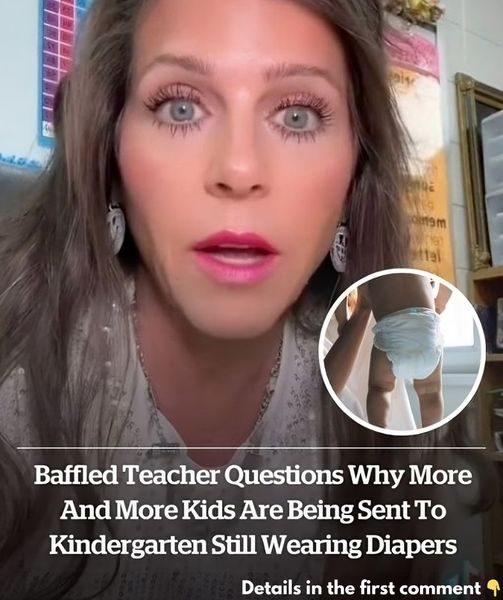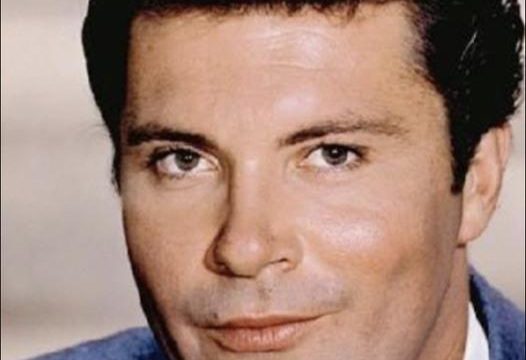The landscape of early childhood education is constantly shifting, but a surprising trend has caught the attention of educators: an increasing number of kindergarteners are arriving at school still in diapers. Brenda Capone Kingston, a seasoned teacher and social media influencer, recently expressed her shock on TikTok, sparking a widespread debate among teachers, parents, and childcare professionals.

A Growing Concern Among Teachers
In a TikTok video that has since been taken down, Brenda Capone Kingston, who goes by @Ms3rdGrade, shared her disbelief at how many kids are starting kindergarten still in diapers. With over 43,700 followers, her post quickly gained momentum, shedding light on an issue many educators had noticed but rarely discussed publicly.
Kingston, who has been teaching for years, voiced her concern: “Diapers in kindergarten—this has been a topic of conversation among teachers for weeks. The number of kids still in diapers in kindergarten—I had no idea it was this many.”
Reflecting on Past Expectations
Kingston’s surprise wasn’t just about what’s happening today; it made her reflect on her own experience as a mother. She remembered a time when being potty-trained was a must before starting kindergarten. “When my kids went to school…they had to be potty-trained before starting kindergarten,” she recalled, mentioning that her daughter, now 24, and her son, 22, were both trained well before their first day of school.
@blueducation @✨🩷Ms3rdGrade💚✨ ♬ original sound – Blueducation
Why Are Kids Still in Diapers?
The burning question for Kingston and others is, why are so many five- and six-year-olds still in diapers? “Why do we have so many five- and six-year-olds in diapers?” she asked, a sentiment echoed by educators across the country who are seeing the same trend.
The reasons behind this phenomenon may be varied. Changes in parenting styles, evolving societal expectations, or simply children not being developmentally ready could all be factors. Still, Kingston’s message is clear—this is an issue that needs attention.
The Challenges Faced by Kindergarten Teachers
For kindergarten teachers, managing a classroom of children who aren’t potty-trained presents an added challenge. Kingston expressed empathy for these teachers, understanding how difficult their job becomes. “Bless your heart, kindergarten teachers, who are dealing with this. I don’t know if I could handle it,” she admitted.
Already tasked with handling a room full of young children, adding diaper duties makes the job even more challenging. Kingston’s concerns highlight the strain this trend is putting on the teaching profession.
Potty Training Laws: A State-by-State Approach
In response to the rising number of untrained children starting school, some states have enacted laws to address the issue. In March, Utah passed legislation requiring children to be potty-trained before entering kindergarten. Rep. Douglas Welton, the bill’s sponsor, cited the growing number of unpotty-trained kids as the driving force behind the new law.
However, in Arkansas, where Kingston teaches, there is no such requirement. This inconsistency between states underscores the need for a more unified approach to early childhood education standards.
The Role of Parents in Potty Training
While schools are dealing with this issue, it’s important to recognize that potty training begins at home. The Mayo Clinic suggests that most children show signs of being ready for potty training between 18 and 24 months, although some may take longer, up to three years.
The trend of children starting kindergarten in diapers points to some parents delaying this important milestone. Busy schedules, lack of awareness, or other reasons may contribute to the delay. Ultimately, it’s the parents’ responsibility to ensure their child is ready for school.
A Controversial Discussion on Social Media
Kingston’s TikTok video sparked a wave of reactions, both positive and negative. Known for her usually upbeat content, Kingston found herself at the center of a heated debate. In a follow-up video, she thanked those who supported her and expressed disappointment in those who misunderstood her message.
“Let’s talk about the elephant in the room,” she began. “First, I want to thank the overwhelming number of people—especially teachers—who reached out. My intent was never to harm, but to bring attention to an issue many of us are facing.”
A Call for Action and Awareness
The rising number of kindergarteners still in diapers signals the need for change. Whether through raising awareness among parents, implementing legislative measures, or providing more support for teachers, this issue cannot be ignored. Kingston’s open discussion has sparked a larger conversation about early childhood development and the responsibilities parents and educators share.
Conclusion: A Wake-Up Call for Parents and Educators
The revelation that more and more kindergarteners are starting school in diapers is a wake-up call for parents, educators, and policymakers. It highlights the importance of early childhood development and the need for clear potty training expectations. Brenda Capone Kingston’s experience serves as a reminder that while raising and educating young children comes with challenges, addressing these issues is essential for the well-being of both children and the professionals who care for them.





